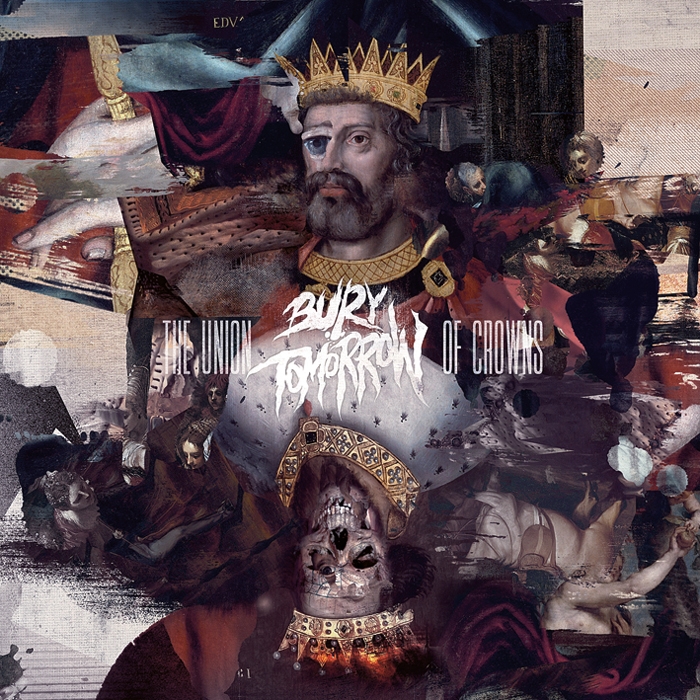
Album Review: Bury Tomorrow - The Union Of Crowns
There may be no word scarier to the traditional metal fan than 'metalcore'. Merely mentioning the term stirs up feelings of angst and unease, as though the music is a deadly infection that threatens to wipe out earlier strains of heavy metal. Perhaps there was a time for such concern, when it looked as though metalcore was going to grow beyond being the next big thing, and would instead come to dominate the scene at large. Like always, those fears were overblown, and have since been tossed into the pile of absurd predictions that is always fun to dig through for a laugh. But while metalcore never reached the commercial heights suggested by Killswitch Engage, it has survived as a more viable form of metal than many would have imagined, and as this new decade unfolds, there are still bands trying to show the validity of the music they came of age listening to.
Bury Tomorrow doesn't reinvent the wheel on “The Union Of Crowns”, but there are times when doing something well is its own form of progression. Metalcore became a running joke in part because of bandwagon jumpers who thought the music a way to earn quick acclaim, musicians who didn't always take into account the work it takes to write songs that are actually worth acclaim. Bury Tomorrow doesn't have to worry about being lumped in with those masses, as “The Union Of Crowns” wastes no time in proving that they are as committed to both halves of the duality. “Redeemer” opens slowly, but once it locks in, the song has just enough of everything to be a pleaser. The metal aspects are there, the screamed vocals and lockstep bass drums, but more impressive is the touch shown with the melodic parts. Singer Dani Winter-Bates' voice isn't out of place on modern rock radio, a gritty enough delivery to keep the music from veering into sappy territory. The melodies conjured up during the clean singing sections are uniformly strong, drawing a greater contrast with the heavy parts than many similar bands are able to achieve.
Writing a hook that sticks with a listener is one of the hardest things for a songwriter to achieve, and Bury Tomorrow shows skill with their compositions. Songs like “The Maiden” may display the deepest harsh vocals on the record, but that's not what you'll take away from the song. The spacey guitar lines serving in lieu of a traditional solo are more memorable than the metal posturing, as is the punchy chorus that follows.
The band follows the formula with little deviation, which isn't a bad idea, because there's a reason it has become the standard. Individually, the songs work, with or without the small shifts like starting “An Honorable Reign” with the chorus instead of a riff into the verse. But over the course of nearly an hour, the predictability of the music does begin to wear. So much of the same thing passes by that it becomes difficult at times to distinguish one song from the other, both in structure as well as sound. Variation is limited to the pitch of the harsh vocals, a lacking that doesn't diminish the songs, but stunts the album's growth. A shorter album would be a more effective unit, coming and going before the listener's patience can begin to wane.
To say that the more aggressive metal moments are the record's downfall would be over-simplifying the situation. While the more technical riffs and harsh vocals rarely manifest themselves in a way that can be remembered from song to song, they are still needed. It's the juxtaposition of those moments with the more subdued and melodic portions that allow the hooks to survive without having to veer further into the realm of pop. Songwriters know that melodies need to grow stronger as verses build into choruses, and it is unclear if Bury Tomorrow would be able to sustain the momentum if the songs committed to melody for their duration. The focus on rhythm in the verses of most of the songs makes the melody jump when it comes in, a subtle trick that makes the whole bigger than the sum of the parts.
If you're not a fan of metalcore, Bury Tomorrow isn't going to change your mind. There's nothing new to be found on “The Union Of Crowns”, no new angle being explored. What you get is an album that knows what it is, and tries to do it as well as possible. That is a commendable attitude, and the result is an album that feels well-crafted, and provides one of the better examples of the genre to come along in a fair while.

